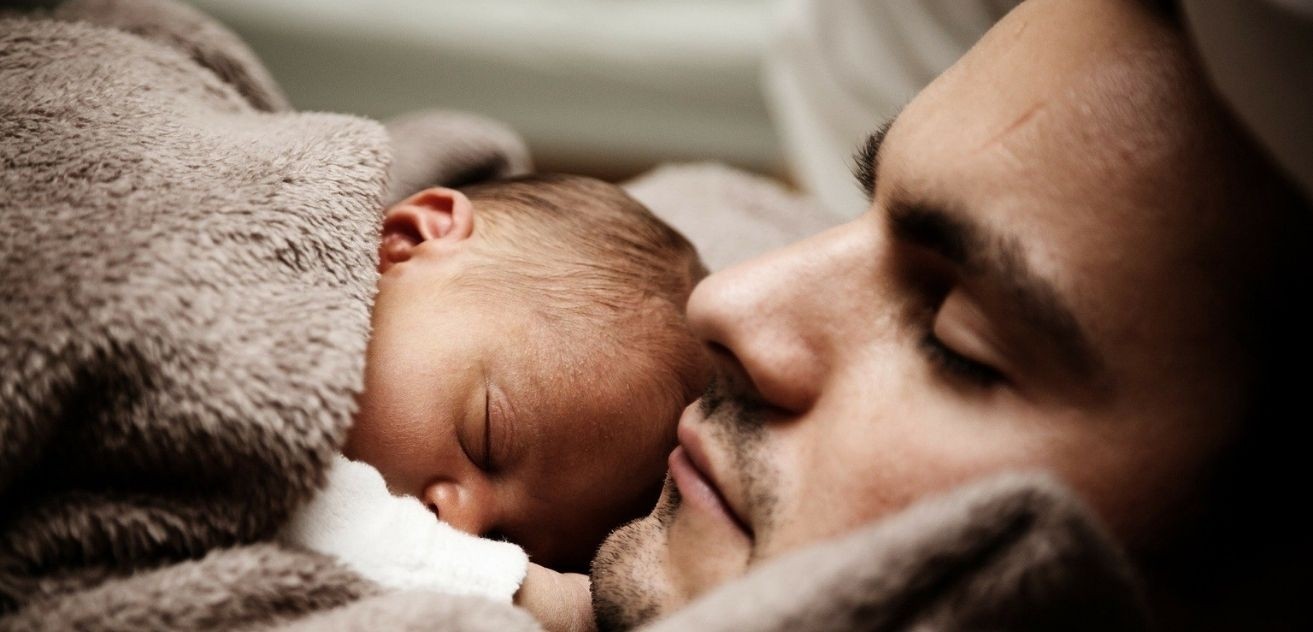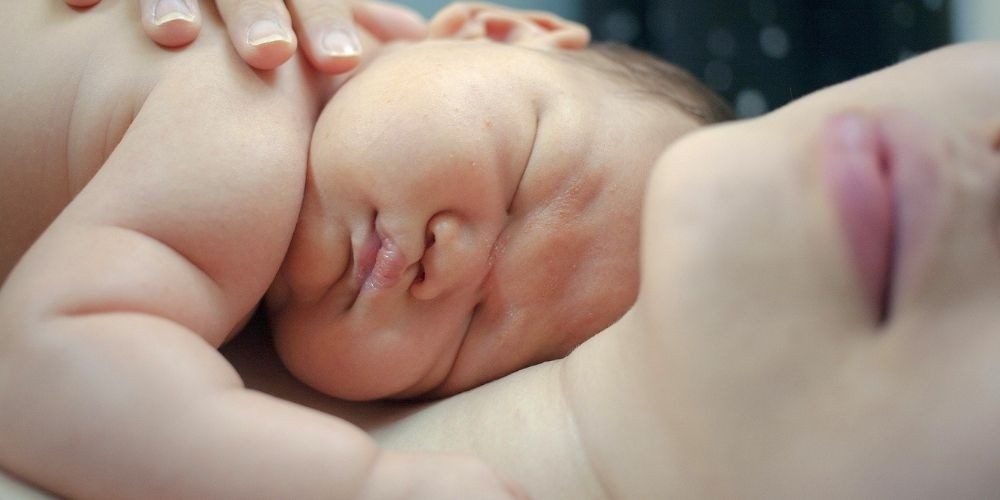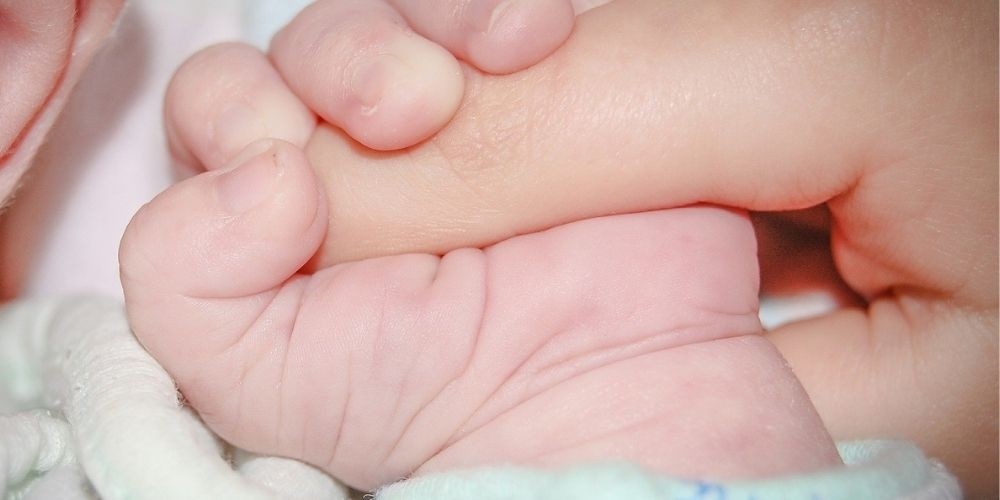
Skin hunger? The importance of skin contact after birth
Skin hunger is the desire for skin-to-skin contact. It is something that everyone, young and old, needs to a greater or lesser extent. Especially babies need plenty of skin contact. After all, it is a (basic) need that must be met from birth.
Babies often have skin hunger. As a result, in recent years, most maternity wards have been paying more attention to ‘kangaroo care’. This involves placing the new-born skin-to-skin on the chest of one of the parents, for real intimate contact and attention.
Research has shown that skin-to-skin contact has a positive effect on both the new-born and the parents. The effects are endless: better attachment and bonding, better temperature regulation, improved sleep patterns, reduced pain response, normalised respiratory rate, ...

Co-regulation: closeness after birth
When a baby is lying (almost) naked on the uncovered chest of one of his parents, this initiates a process called co-regulation.
What is co-regulation? In his first years of life, a child has to learn to regulate a variety of physiological and emotional processes. Initially, these are mostly related to his temperature, but it involves much more. It is also about regulating the pain response, hunger, tension, emotions, ...
Co-regulation means that as a parent or adult you support and help your child in these processes. For example, if your toddler throws a tantrum, you, as the adult, try to remain calm, in the hope that the toddler who is so upset will take over that calmness, so to speak. But surely, a baby doesn’t have tantrums yet?
Well, no, not in the literal sense of the word. But remember that your baby has spent 9 months in the warmest and safest environment in the world: the womb. So why do we expect that all of a sudden he is able to do everything independently as soon as he is born?
Hence, we should be so grateful that skin contact and co-regulation have been so extensively researched and we have all this valuable information now. We now know that skin-to-skin contact in the first few months of their lives is good for babies because of the process of co-regulation. They learn, as it were, to better regulate their physiological processes because of the closeness of the parent. It also improves the bonding process between baby and parent.
Another, perhaps even more important, effect is that by smelling and feeling his parents and hearing the (quiet) heartbeat, the baby himself is more easily comforted. And also feel safer.
So an important tip: don’t stop kangarooing once you come home from the hospital, but continue to (occasionally) take off your T-shirt and your baby’s romper, and snuggle up together!

Contact reinforces
But what if you read all of this and you feel that you have not been able to do this, or not enough, with your baby in the first moments and months, is all lost?
No, of course not. Science and social opinion are constantly evolving. Even with older children, physical contact and closeness remain important. Even ‘ordinary’ touches have huge effect. Let’s put it this way: hugging boosts the immune system, reduces stress and anxiety, and gives children more self-confidence.
- Roxanne Hendrickx, paediatric therapist
Roxanne is a young mom of 3 daughters. As a systemic therapist, she provides counselling to children and teens in her own practice. Her main field of expertise within psychology concerns positive attachment and attachment disorders.
Related posts
In the picture: BeSafe Pregnant
in 'Blogpost'
The benefits of a swaddling bag
in 'Blogpost'
How do I choose the right sleeping bag?
in 'Blogpost'
